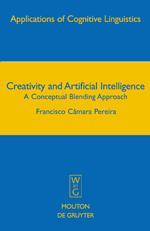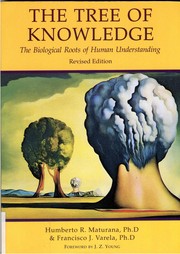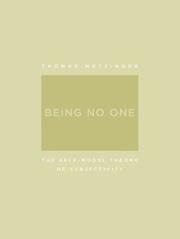The Ego Tunnel: The Science of the Mind and the Myth of the Self by Thomas Metzinger, narrated by Kevin Pariseau, Audible 2009
Motivation
Interested in cognitive science, Meditation, wrote There Is No Self 4 months before (January 2010) then finally watched his 2005 Being No One UC Berkeley conference (notes on Being No One 2004).
Pre-reading model
Draw a schema (using PmGraphViz or another solution) of the situation of the area in the studied domain before having read the book.
Reading
Introduction (min0-min31)
- ~min4 chapter by chapter topics that will be studied
- Olaf Blanke at the Laboratory of Cognitive Neuroscience, EPFL
Part 1 : The Consciousness Problem
- Chapter 1 : The Appearance of a World (0h31-0h58)
- ~0h49 on epistemology
- ~0h53 on Plato's cave
- mention of "Out of brain experiences", often an aim of religious practices
- Chapter 2 : A Tour of the Tunnel (0h58-3h13)
- ~1h18 mention of Julio Tononi
- discussion on the now, an affordance to time, a way to distinguish between the past and what is happening right now
- mention of the global workspace theory (GWT), discovered first in WithoutNotesNovember09#ConsciousnessIsComputational then BeingNoOne
- mention of the metabolic price (aka Wikipedia:Bioenergetics
 ), previously discovered in the author talk at Berkeley
), previously discovered in the author talk at Berkeley
- description of the geometry of the tunnel
- having thick walls of multimodal perceptions thus resisting naive first person exploration
- consciousness as a tool to manipulate simulations and reality while remaining each marked as such
- ~2h16min qualia
- ~2h58min Appendix, A conversation with Wolf Singer
Part 2 : Ideas and Discoveries
- Chapter 3 : Out of the Body and Into the Mind (3h13-4h53)
- ~3h15 mention of proprioception in the vestibular system (first discovered in SC 01)
- physiological model build as statistical correlation of synchronicity
- ~3h19 importance of top-down processes
- ~3h20 discussion on tool use
- ~3h28 discussion on exaptation
- ~3h32 mention of Jaegwon Kim
- description of his own OBE experiences and study of "traditional" philosophy that lead him to conduct such research
- ~3h40 mention of Susan Blackmore
- ~4h10 virtual reality experiment with HMD to watch your own back
- 4h27 internal user interface
- 4h51 quoting Spinoza
- Chapter 4 : From Ownership to Agency To Free Will (4h53-?)
- 5h03 explanation of affordances
- Chapter 5 : Philosophical psychonautic, what can we learn from lucid dreaming (~0h00)
- ...
- ~0h20 dream techniques
- reality checks during daytime
- dream log used in the morning (cf DreamLog)
- devices
- Chapter 6 Appendix : The Shared Manifold, a conversation with Vitorio Galeze (~1h46)
- cognitive neuroscientist at Univeristy of Parma
- described on 3 levels
- phenomenological level
- similarity, part of larger group
- functional level
- embodied simulation of the action we see
- automatic, not requiring to be rational and wanted
- subpersonal level
- instanciated with the activity of mirror neurons
- multimodel shared space
- extended empathy
- ~1h59 discussion on different levels of recursion between human and other animals
- I know that you know that I know...
- cf FECN and the example of Shakespear
- continuing on this application on language too
- "a quantitive difference in computationnal power and degree of recursion could produce a qualitatively leap forward in social cognition"
- see also Person as a direct application of such a principle
- ~2h00 discussion on a "memetic culture"
- potential key rule of mirror neuron for social education
- teaching during story telling, imitation, ...
- ~2h04 discussion on the futur of the field
- moving out of a very limited domain of tested subjects
- need for ethno-neuroscience to see the impact of a social environment and cultural education
- fine grained characterization instead of the "average" social brain
- embodied mechanism in semantic and syntaxical aspect of language
- crack the boundary of subjective phenomenal states thanks to need experimental paradigm also based on brain imaging
- cf Cognition#ThinkingAboutThinking also discussing cognition and manifolds
- ~2h08 discussion on the futur of philosophy
- "science can contribute to the elimination of false philosophical problems" not disolve philosphy
Part III : Consciousness revolutionned
- Chapter 7 : Artificial Ego Machines (~2h10)
- 2h10 hybrid bio-robotics
- 2h15 self-modeling robots
- ALife studies
- recover own topology even after lost limbs
- could be interesting to see how it adapts to the opposite
- presentation of a 300 rat neurons control arm at Reeding University (UK)
- artificial life
- definition of "post-biotic" as "systems that are neither exclusively natural nor exclusively artificial"
- ~2h17 "conscious selfood will first be realised in post-biotic ego machines"
- 2h20 discussion on ethics regarding self-modeled "ego machines"
- ~2h24 discussion on Alan Turing
- argument consended by Karl Popper later on
- "Specify a way in which you belief a man is superior to a computer and I shall build a computer which refutes your beliefs. Turing challenge should not be taken up for any sufficiently precise specification could be used in principle to program a computer." Karl Popper
- "It is not the self that uses the brain as Karl Popper would have said, the brain uses the self-model."
- ~2h26 discussion on ethical and moral ground
- see also Flowers for Algernon?
- "we should not even risk the realisation of artificial phenomenal self-models. Our attention would be better directing at understanding and neutralizing our own suffering. In philosophy as well as in the cognitive neurosciences and the field of artificial intelligence until we become happier beings than our ancestors were we should refrain from any attempt to impose our mental structure on artificial carrier systems."
- question on the bliss ego-machine
- ~2h42 mention of the "headonic treadmill"
- "the headonic treadmill is the motor that nature invented to keep the organism running. We can regognize the structure in ourselves, but we will never be able to escape it, we are this structure."
- link to the "blind [and] merciless" evolution process that "invented the reward system in the brain, it invented positive and negative feelings to motivate our behavior, it placed us on a headonic treadmill that constantly forces us to try be as happy as possible, to feel good without ever reaching a stable state but as we can now clearly see this process has not optimized our brains and minds toward happyness as such."
- warning that the evolution process stays without an aim
- ~2h47 A conversation with the first post-biotic philosopher
- played thought experiment
- Metzinger's test on consciousness compared to Alan Turing's test on intelligence
- Metzinger's test for consciousness on non-biological systems
- system must
- claim to possess phenomenal experience
- claim a genuine inward perspective
- comprehend and accept the theoretical problem of subjectivity
- 2h48 mention of Hilary Putnam and hardware or substrate chauvinism
- 2h55 Wikipedia:Genetic fallacy

- fictional "meta-semantic internet" installed in a distributed fashion
- Chapter 8 : Consciousness, Technologies and the Image of Humankind (2h59-?)
- ~3h07 discussion on the evolution of a human being
- "We are gene copying devices capable of evolving conscious self-models and creating large societies."
- ~3h15 the third phase of the consciousness revolution
- first phase : understanding conscious experience as such, the tunnel
- second phase : unraveling the mysteries of the first person perspective, the ego
- third phase : normative dimension of this historical transition, anthropology, ethics, political philosophy
- how to deal with the new possibilities resulting from it
- ~3h26 discussion on epistemology and knowledge dissemination
- "we were able to cooperate in constructing abstract entites that moves through time and are constantly optimized, we called these entities theories."
- cf Evolutionary Epistemology as discussed in Stanford Encyclopedy of Philosophy
- "Your individuality, the uniqueness of your mental life has much to do with the trajectory through phenomenal states space you choose. Nobody will ever live this conscious life again. Your ego tunnel is a unicom, one of a kind." ~3h30
- 3h30 discussion on cognitive enhancement
- Chapter 9 : A New Kind of Ethics
- ~3h33
- 3h50 mention of Aldous Huxley's The Doors of Perception
- 4h00 discussion on BigPharma and "internet pharmacy"
- 4h05 question for modern neuroethics: which brain states should be legal
- 4h11 guiding principle "We should not increase the overall amount of conscious suffering in the universe unless we have compelling reasons to do so."
- 4h15 proposing Consciousness ethics after Wikipedia:Neuroethics

- 4h20 importance of attention and critics of multi-tasking, critic of entertainment and advertisement industry (woohoo!)
Key concepts
- Neural correlates of consciousness (NCC)
- Phenomenal self-model (PSM)
- Self-model theory of subjectivity (SMT)
- Phenomenal model of the intentionality relation (PMIR)
See also
Overall remarks and questions
- define my own self-model
- debug my "explicited <<self>>"
- useful for being more efficient regarding
- my health
- my social life
- how others perceive me through the way I perceive and thus present myself
- most dubious phenomena (OBE, "soul", ...) seems to be phenomenological physiologically explainable activities
- the cultural influence of wishful thinking, religion and politics but overall simply lack of explanation on such biological activities including "glitches" from the body
- as often in science though, limit cases provide potentially information rich situations to study
- I also experienced temporary "locked-in" problems during awakening (Wikipedia:Sleep paralysis
 or Wikipedia:Cataplexy
or Wikipedia:Cataplexy ) or falling asleep moments (Wikipedia:Hypnic jerk
) or falling asleep moments (Wikipedia:Hypnic jerk )
)
- weird feeling experienced several time during self-inquiry done through a rigorous removal of what my social network knew and thus define "myself" independantly
- rather disturbing
- should be done again through the model of this book
- Girl Deletes Boyfriend�s World of Warcraft Characters (Rage Ensues) by Tom Cheredar, Geeks of Doom June 2010
- Soul-travel for selfless beings by Thomas Metzinger, The World Question Center 2009
Application On Self
To do
- add robotics links shared in freenode/##AGI at 21:00 the 20/06/2010
Synthesis
So in the end, it was about X and was based on Y.
Critics
Point A, B and C are debatable because of e, f and j.
Vocabulary
(:new_vocabulary_start:)
new_word
(:new_vocabulary_end:)
Post-reading model
Draw a schema (using PmGraphViz or another solution) of the situation of the area in the studied domain after having read the book. Link it to the pre-reading model and align the two to help easy comparison.
Categories
Back to the Menu
Other read books linking to the TheEgoTunnel page :
Back to the Menu
 Fabien Benetou's PIM
Fabien Benetou's PIM












